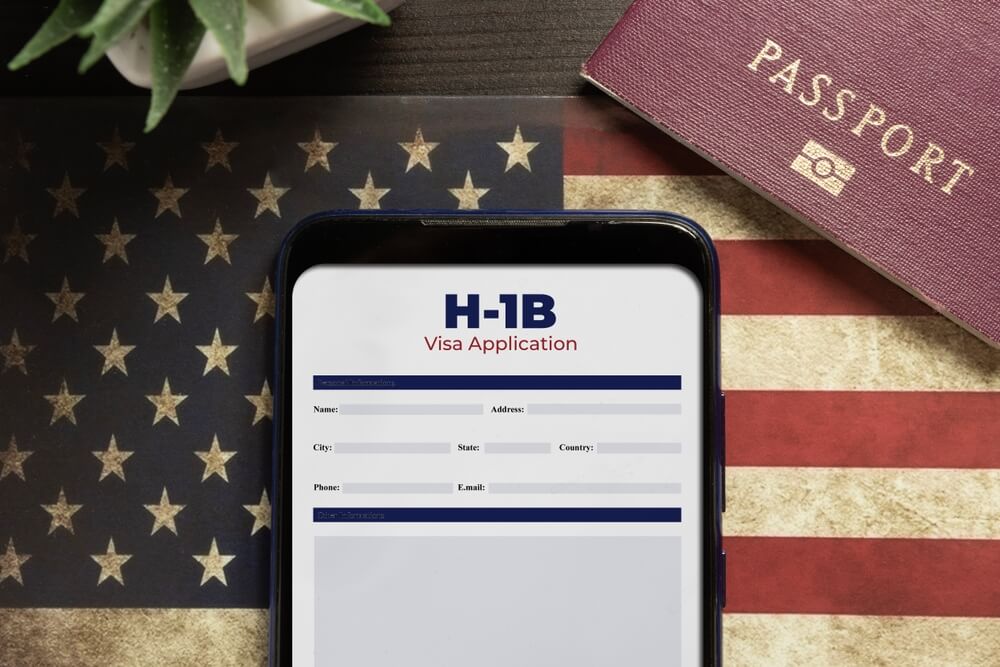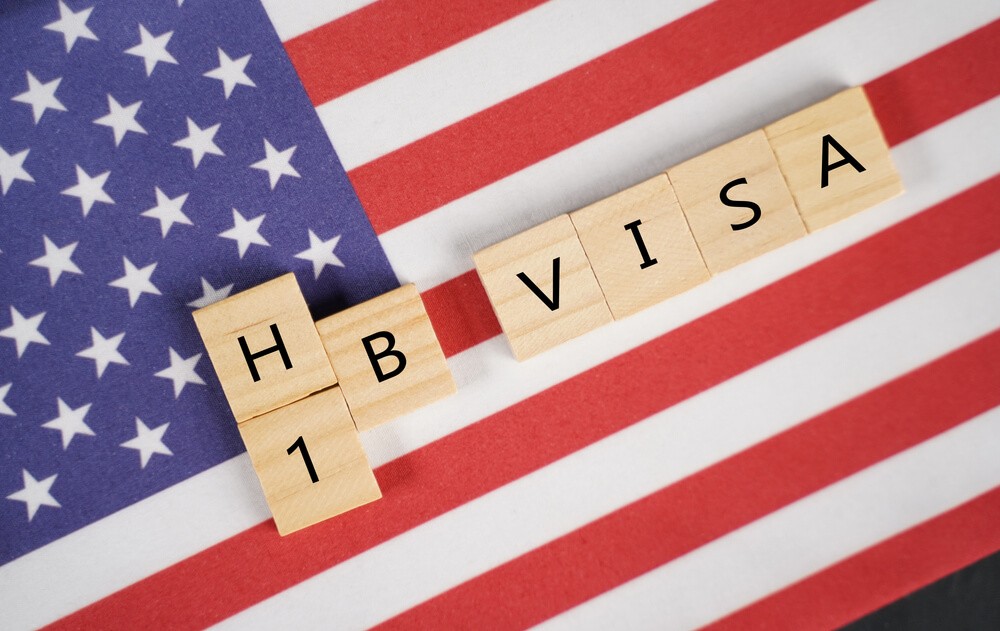Cap exempt H1B: A Complete Guide
In this detailed guide, we’ll cover everything you need to know about the cap exempt H1B visa. If you work for a higher education academic execution, you may be exempt from an H1B lottery. We explain different cap exempt H1B employers, the application process, how to transfer between H1B cap exempt employers and more

By:
Chelsea Spinos
Reviewer:
Simon Craven, Esq.
10 min read • Nov 20, 2024
Key takeaways
The cap exempt H1B visa allows applicants to avoid the annual limit of visas and the lottery system associated with cap subject H1B visas.
H1B cap exempt employers can submit petitions anytime—no need to stress about tight filing deadlines that come with cap-subject H1Bs.
Eligible employers for cap exempt H1B visas include: 1) universities and colleges, 2) nonprofit organizations affiliated with universities, 3) government research organizations, and 4) nonprofit research organizations.
With a cap exempt H1B visa, you can work initially for up to three years, with options for extensions, and you have the ability to transfer to a cap subject H1B visa if you’re chosen in the lottery.
Manifest Law is here to assist with the H1B cap exempt visa process and ensure that sponsoring employers meet all eligibility requirements.
The H-1B visa is a top choice for skilled workers aiming to build their careers in the United States. However, with an annual cap of 85,000 visas and a competitive lottery system, securing one can feel like a challenge.
The good news is that not everyone has to deal with the cap or lottery. Certain employers and positions qualify for a Cap exempt H1B, allowing them to apply at any time of the year without worrying about the limits. This makes the process much smoother for eligible candidates.
In this guide, we’ll dive into everything you need to know about the Cap exempt H1B, including what it means, who qualifies, and how the process works. If you’re looking for an easier way to secure an H-1B visa, understanding the Cap-Exempt H1B could be the key to your success.
Typically, the standard H1B visa program has a limit or “cap” on the number of visas issued each year—set at 65,000 for most applicants, with an additional 20,000 reserved for those with U.S. master’s degrees or higher. Applicants must register in an annual lottery to get chosen for one of these limited spots, and need to do so well in advance of the start date.
Due to regular high demand, many H1B visa applicants face low odds of selection in the annual lottery, with only a small portion making it through each year. However, certain employers are exempt from this cap on H1B visas, and can file at any time, regardless of the limit or selection in the lottery.
Quota: These visas are limited to 65,000 each fiscal year, with an additional 20,000 for individuals with a master's degree or higher from a U.S. institution. This cap creates significant competition among applicants for selection in a lottery.
Employer Types: Typically sponsored by private employers across various sectors like technology and healthcare.
Application Timing: Applications can only be submitted starting April 1st for employment beginning October 1st.
No Quota: Cap-exempt visas have no annual limit, providing greater flexibility in application and approval.
Employer Types: Common sponsors include institutions of higher education, nonprofit organizations affiliated with universities, and government or nonprofit research organizations.
Application Timing: Applications can be submitted at any time throughout the year.
Universities and Colleges: U.S. higher education institutions can hire H1B employees without being limited by the cap, allowing them to bring on specialized staff like professors or researchers year-round.
Nonprofits Affiliated with Universities: Nonprofit organizations closely linked to universities—like teaching hospitals or research centers—can also hire H1B workers outside of the cap.
Nonprofit Research Organizations: Independent nonprofits dedicated to scientific research qualify as cap-exempt, meaning they can sponsor H1B visas anytime.
Government Research Organizations: U.S. government-funded research institutions that work on public benefit projects are also exempt from the cap.
Recognized as Higher Education: Must be a U.S.-accredited college, university, or community college offering degrees or certifications beyond high school.
Primary Purpose: The institution’s main focus must be on post-secondary education (e.g., bachelor’s, master’s, or doctoral programs).
Nonprofit Status: Many cap-exempt universities and colleges are nonprofit, but even for-profit universities may qualify if they meet other criteria.
Formal Affiliation with a College or University: The organization must have a clear, documented affiliation with an accredited U.S. college or university.
Nonprofit Status: The organization must be a registered nonprofit, often focused on supporting educational or research activities.
Role Supporting Higher Education: The organization’s primary mission should align with the educational, research, or public service goals of its affiliated college or university.
Direct Government Affiliation: The organization must be a U.S. government entity or receive government funding and oversight.
Primary Purpose: Research: The main mission must be to conduct research that serves public benefit or advances knowledge in specific fields, including science, medicine, technology, or social policy.
Public Service or National Benefit Focus: The organization’s research should aim to address issues of public importance or benefit society, rather than commercial gains.
Nonprofit Status: The organization must be registered as a nonprofit under U.S. law.
Focus on Research: The primary mission of the organization must be to conduct research that contributes to public knowledge or benefits society.
No Commercial Profit Motive: The organization shouldn’t be primarily focused on generating profit or engaging in commercial business activities. Instead, its efforts should be focused on public benefit and scientific or educational advancement.
Category
Higher Education Institutions
Nonprofits Affiliated with Universities
Government Research Organizations
Nonprofit Research Organizations
Organization Name
University of California
Harvard University
Stanford University
Massachusetts Institute of Technology (MIT)
Johns Hopkins Hospital
The University of Chicago Medical Center
The George Washington University Hospital
University of Pennsylvania Health System
National Institutes of Health (NIH)
National Aeronautics and Space Administration (NASA)
Department of Energy National Laboratories
Centers for Disease Control and Prevention (CDC)
The RAND Corporation
The Salk Institute for Biological Studies
The Brookings Institution
The Pew Research Center
No Lottery Hassle: One of the biggest advantages is that you don’t have to go through the H1B lottery. This means more job opportunities are available, and you can apply anytime, not just during specific windows.
Immediate Employment: You can start working soon after receiving your job offer.
Diverse Job Opportunities: H1B cap-exempt jobs are available in various sectors, including education, nonprofit research, and government organizations, allowing you to find a position that matches your skills and interests.
Stability: Working for H1B cap-exempt employers often comes with more stability, as these organizations tend to be well-established and focused on long-term projects.
Limited Employer Options: While there are many cap-exempt employers, the list is narrower than the broader H1B visa job market.
Specific Qualifications: Not all positions at cap-exempt organizations qualify for H1B exemptions, so you may need to meet specific educational or job-related criteria to be eligible.
Potential Salary Limitations: Some nonprofit and government research organizations may offer lower salaries compared to private sector companies.
Work Environment Variations: The culture and work environment in nonprofits and government jobs can be different from the corporate world.
💡 Manifest Tip: We strongly recommend working with an immigration attorney familiar with the requirements for H1B cap-exempt jobs to help ensure you meet the necessary qualifications. Book a free consultation with Manifest Law today.
Step 1: Find an H1B Cap Exempt Employer
💡 Manifest Tip: Make sure the employer is aware of the cap-exempt status and is willing to sponsor your H1B visa.
Step 2: Gather the Required Documents
Step 3: Have Your Employer File the Petition
Step 4: Wait for a Decision from USCIS
Step 5: Apply for the H1B Visa
Need help with applying for a cap-exempt H1B visa? Our experienced team at Manifest Law can help ensure that both you and your employer meet all the necessary requirements, streamlining your journey to secure employment in the U.S. Whether you need assistance with documentation or navigating the specifics of transferring from a cap-exempt H-1B to a cap-subject visa (or vice versa), we're here to help.
Book a free consultation with Manifest Law today.
Is there an annual limit on the number of cap-exempt H1B visas?
No, there’s no annual limit on cap-exempt H1B visas! Unlike cap-subject visas, which have strict quotas, cap-exempt visas allow eligible employers, such as universities and certain nonprofits, to apply whenever they need to. This means more opportunities for foreign workers to secure jobs in the U.S. without worrying about the limit.
What is the difference between cap-exempt and cap-subject H1B visas?
The key differences between cap-exempt and cap-subject H-1B visas are the quotas and the types of employers that sponsor them.
Cap-subject visas are limited to 65,000 annually (plus 20,000 for US advanced degree holders), and are in high demand.
In contrast, cap-exempt visas are not bound by a quota and can be sponsored by institutions of higher education, affiliated nonprofits, and government research organizations, allowing them to apply year-round.
Can a cap-exempt H1B holder switch to a cap-subject position?
Yes, you can switch from a cap-exempt H-1B to a cap-subject position, but you'll need to start the application process anew. Your new employer must register you in the H-1B lottery, and (if selected) file a cap-subject petition for you. If you are not selected, you will have to wait until the next window opens the following year.
Can cap-exempt H1B visa holders work for more than one employer?
Yes, if you hold a cap-exempt H-1B visa, you can work for multiple employers. Each employer, however, must file a separate petition for you.
Can cap-exempt H1B holders apply for a Green Card?
Definitely! If you hold a cap-exempt H-1B visa, you can apply for a Green Card. Many people transition from H1B status to a green card through employment-based applications.
What happens if my cap-exempt position is terminated?
If your cap-exempt position is terminated, your H-1B status will also end. You’ll need to find another qualifying employer to file a new H-1B petition. If you do not find another cap-exempt employer, you would need to register in the next H1B lottery for a cap-subject petition. . If you can’t secure a new position quickly, you may have to leave the U.S. or explore different visa options, so it’s best to seek advice from an immigration attorney.
Can I renew or extend a cap-exempt H1B visa without limits?
While cap-exempt H-1B visas can be renewed or extended, they’re not without limits. You can typically request an extension for up to six years of total H-1B time in the US. You may be able to get additional extensions if you start a green card process in time.
In this blog article:



















